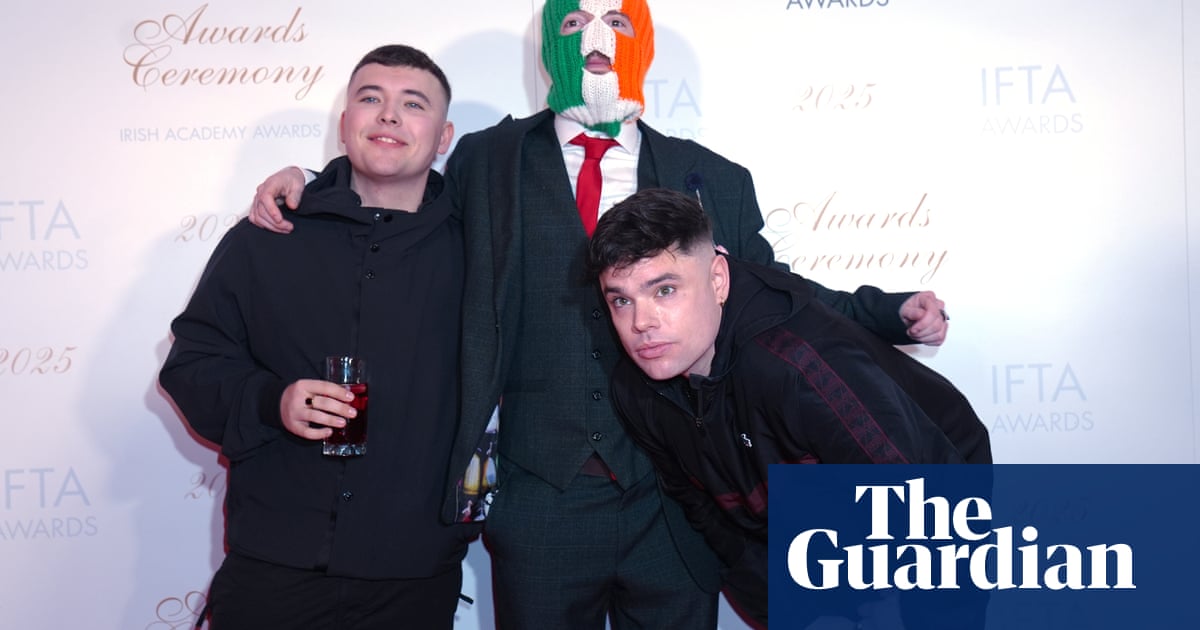Kneecap have apologised to the families of murdered MPs David Amess and Jo Cox after footage emerged in which the Irish-language rappers purportedly call for politicians to be killed.
Criticism of the group has been mounting – including from Downing Street and the Conservative leader of the opposition, Kemi Badenoch – since a video emerged from a November 2023 gig appearing to show one person from the group saying: “The only good Tory is a dead Tory. Kill your local MP.”
Keir Starmer’s official spokesperson said on Monday the prime minister believed the comments were “completely unacceptable” and “condemns them in the strongest possible terms”.
Katie Amess, whose father, David Amess, wasmurdered by an Islamic State fanaticin his Southend West constituency in 2021, said she was “gobsmacked at the stupidity of somebody or a group of people being in the public eye and saying such dangerous, violent rhetoric” and demanded an apology.
Overnight on Monday, the Belfast group – Liam Óg Ó Hannaidh, Naoise Ó Cairealláin and JJ Ó Dochartaigh – posted an apology on X and suggested the condemnation had been an “effort to derail the real conversation” about Gaza.
The band has previously claimed they are facing a “co-ordinated smear campaign” after speaking out about “the ongoing genocide against the Palestinian people”.
“To the Amess and Cox families, we send our heartfelt apologies, we never intended to cause you hurt,” they said in the 500-word statement.
“Establishment figures, desperate to silence us, have combed through hundreds of hours of footage and interviews, extracting a handful of words from months or years ago to manufacture moral hysteria,” they said.
“Let us be unequivocal: we do not, and have never, supported Hamas or Hezbollah. We condemn all attacks on civilians, always. It is never okay. We know this more than anyone, given our nation’s history.
“We also reject any suggestion that we would seek to incite violence against any MP or individual. Ever. An extract of footage, deliberately taken out of all context, is now being exploited and weaponised, as if it were a call to action. This distortion is not only absurd – it is a transparent effort to derail the real conversation.”
Scotland Yard is reportedly looking into the alleged call to kill MPs, along with another concert from November 2024 in which a member of the band appeared to shout “Up Hamas, up Hezbollah” – groups that are banned as terrorist organisations in the UK.
